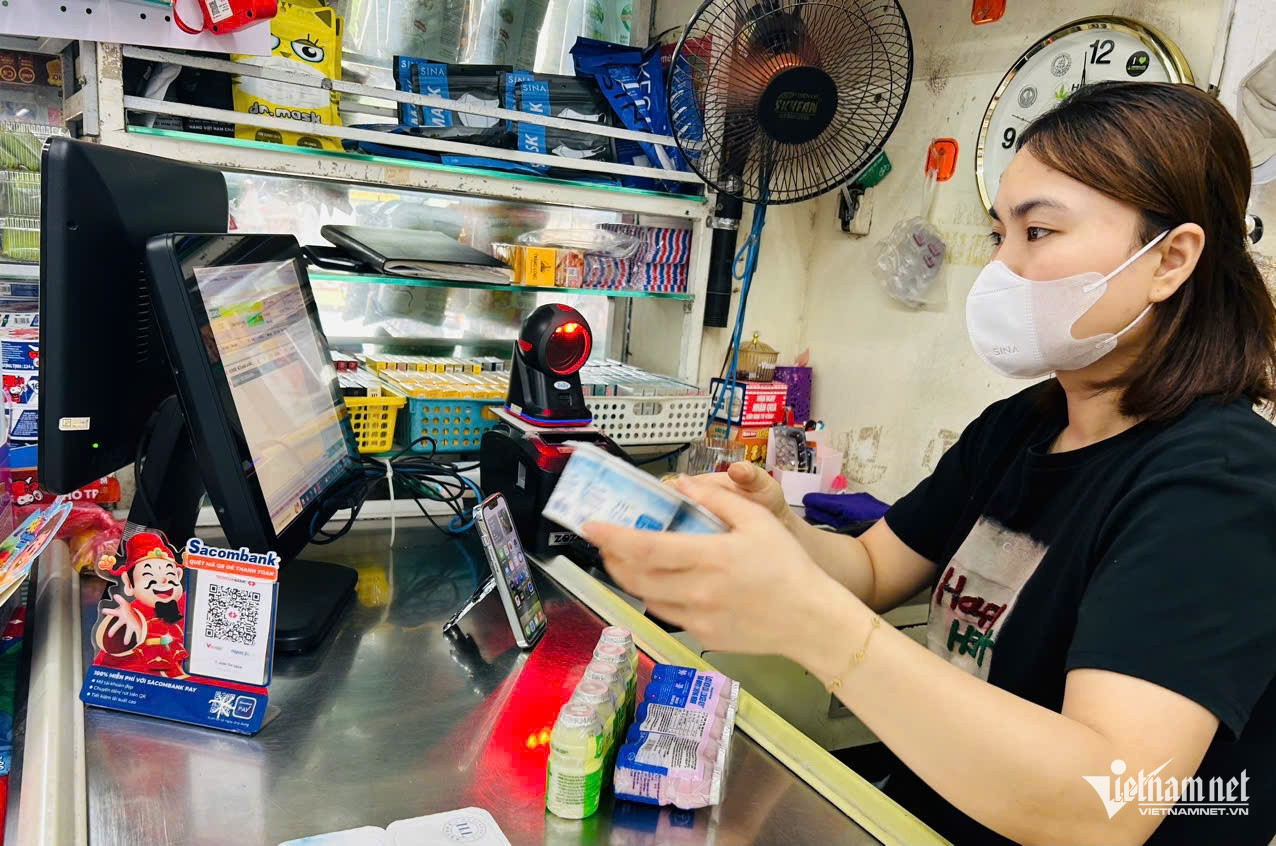As Vietnam moves to enforce the mandatory use of e-invoices generated from cash registers for small businesses with over USD 39,000 in annual revenue, concerns are mounting about readiness.
Many business owners, particularly at local markets and street food stalls, are overwhelmed by the new digital tax requirements set to take effect on June 1, 2025.
Willing to comply, but still confused

While digital invoicing is familiar to registered enterprises, it’s a major shift for hundreds of thousands of small traders. The new policy requires electronic invoices to be generated directly from a point-of-sale system and transmitted to tax authorities in real time.
Thu Trang, a bedding and mattress vendor in Hanoi, currently pays taxes under a flat-rate system and admits she's confused. “I’m not tech-savvy. Terms like ‘e-invoice from a cash register’ or ‘real-time data connection’ are daunting,” she said. Like many others, she hopes tax authorities will offer clearer guidance and software support.
To ease the transition, Nguyen Van Than, Chairman of the Vietnam Association of Small and Medium Enterprises, has proposed that the state develop a free accounting app to help small business owners manage their input-output records and fulfill tax obligations. The app, he said, would also reduce the burden on tax authorities currently overseeing more than 5 million small businesses nationwide.
Policy makes sense, but timing too tight
Nguyen Minh Thao, Head of the Business Environment and Competitiveness Research Department at the Central Institute for Economic Management, supports replacing the flat-rate tax regime with digital invoicing to ensure transparency and fairness. She stressed that the goal of reaching 2 million formal enterprises by 2030 requires such policy changes.
However, she warned that the implementation timeline has been too abrupt. “Many business owners haven’t had time to invest in the necessary technology or connect their systems with the tax department,” Thao said.
Older traders and those in remote or rural areas, where internet access and digital literacy remain limited, are especially vulnerable. Thao recommended delaying the mandate by at least three months to allow adequate preparation and training. “Rushing the rollout creates challenges for both business owners and tax officials,” she noted.
She emphasized that authorities should prioritize education and motivation over punishment. “Only after comprehensive support and a grace period should penalties be applied to those who still refuse to comply.”
Tailored support and technical flexibility urged
Nguyen Thi Cuc, Chairwoman of the Vietnam Tax Consultancy Association, affirmed that linking cash registers with e-invoice systems is practical in the digital economy. However, she recommended classifying businesses into those ready to issue e-invoices immediately and those who may need to send buyer data to the tax office and print invoices later.
“For example, a grocery shop with a fixed location can print receipts easily,” she said. “But food stalls or seafood vendors accepting mobile payments in open markets may not be able to issue receipts on the spot.”
In response, Mai Son, Deputy Director of the General Department of Taxation, confirmed that tax departments would actively visit small businesses this June to assist with the transition.
To ensure proper guidance, many local tax offices have assigned staff outside regular hours and are partnering with software vendors to provide in-person, hands-on training for small business owners adopting the new e-invoice system.
Nguyen Le